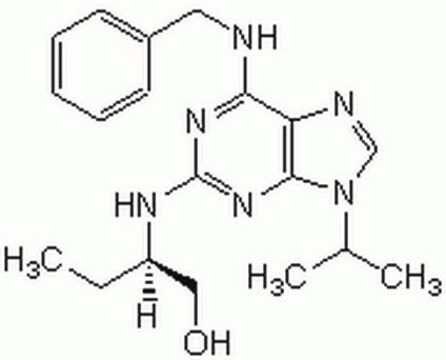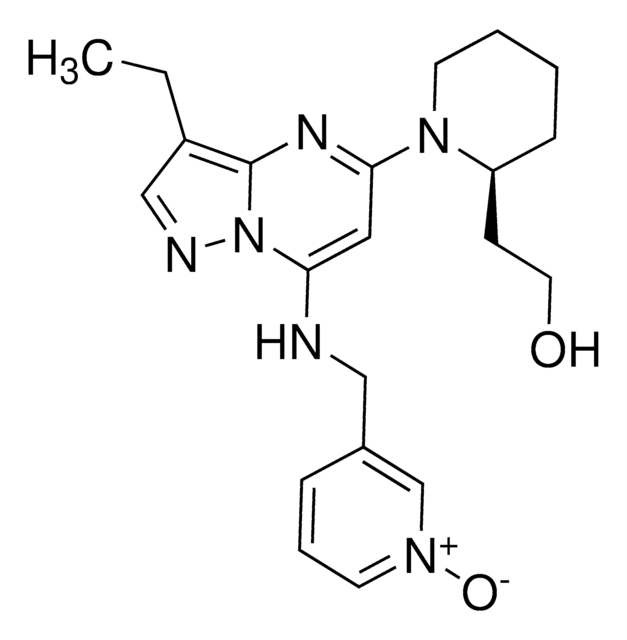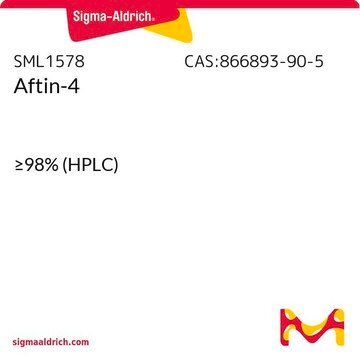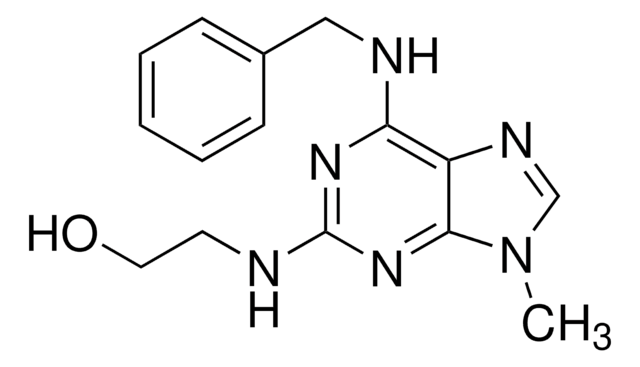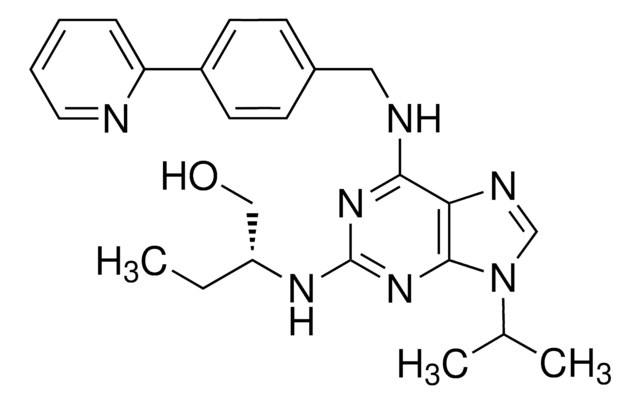557360
Roscovitine
≥95% (HPLC), solid, Cdk inhibitor, Calbiochem®
Sinónimos:
Roscovitine, 2-(R)-(1-Ethyl-2-hydroxyethylamino)-6-benzylamino-9-isopropylpurine, Cdk7 Inhibitor I
About This Item
Productos recomendados
product name
Roscovitine, A potent, reversible, and selective inhibitor of Cdks that exhibits about 10-fold greater efficacy towards p34-cdk1 and p33-cdk2 and 20-fold greater efficacy towards p33-cdk5 relative to Olomoucine.
Nivel de calidad
Análisis
≥95% (HPLC)
formulario
solid
fabricante / nombre comercial
Calbiochem®
condiciones de almacenamiento
OK to freeze
color
white to off-white
solubilidad
DMSO: 10 mg/mL
Condiciones de envío
ambient
temp. de almacenamiento
−20°C
InChI
1S/C19H26N6O/c1-4-15(11-26)22-19-23-17(20-10-14-8-6-5-7-9-14)16-18(24-19)25(12-21-16)13(2)3/h5-9,12-13,15,26H,4,10-11H2,1-3H3,(H2,20,22,23,24)/t15-/m1/s1
Clave InChI
BTIHMVBBUGXLCJ-OAHLLOKOSA-N
Descripción general
Acciones bioquímicas o fisiológicas
p34cdk1/cyclin B
Advertencia
Reconstitución
Otras notas
Meijer, L., et al. 1997. Eur. J. Biochem.243, 527.
Meijer, L., et al. 1996. Trends Cell Biol. 6, 393.
Rudolph, B., et al. 1996. EMBO J. 15, 3053.
Información legal
Código de clase de almacenamiento
11 - Combustible Solids
Clase de riesgo para el agua (WGK)
WGK 3
Punto de inflamabilidad (°F)
Not applicable
Punto de inflamabilidad (°C)
Not applicable
Certificados de análisis (COA)
Busque Certificados de análisis (COA) introduciendo el número de lote del producto. Los números de lote se encuentran en la etiqueta del producto después de las palabras «Lot» o «Batch»
¿Ya tiene este producto?
Encuentre la documentación para los productos que ha comprado recientemente en la Biblioteca de documentos.
Nuestro equipo de científicos tiene experiencia en todas las áreas de investigación: Ciencias de la vida, Ciencia de los materiales, Síntesis química, Cromatografía, Analítica y muchas otras.
Póngase en contacto con el Servicio técnico
